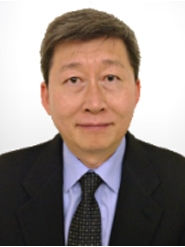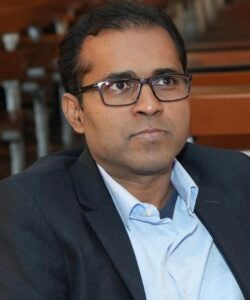Power and Energy Systems
The teaching and research activities can be categorized into four main themes: Electrical Machines and Drives, Power Electronics, Power Systems, and Semiconductor devices. The application of our research area has a wide range including smart grid technologies, renewable integration, energy harvesting, control and management of electric vehicles connected to the power grids, low-power intelligent sensing nodes, and assistive technology. Meanwhile, Semiconductor Devices research is focused on developing high voltage (650 V, 1200 V) wide bandgap semiconductor devices to raise the system performance and energy efficiency, via the high quality switching devices operating under high-frequency energy conversion. This includes their design, modelling, fabrication processes, device prototyping, gate drives, protection circuits and overall integration. Such devices are suitable for renewable energy market, electric vehicles and smart power grid in the distribution level. The group is involved into interdisciplinary system level research with several industrial collaborators and various governmental agencies.
Research Focus
- Power Electronics

Power Electronics research is mainly focused on analyzing, designing, and developing novel power converter topologies and innovative modulation techniques for the given applications. Ongoing research mainly focusses on modern and emerging applications such as microgrid, nano-satellite, marine, renewable energy, energy storage, transportation, data centers, UPS, LED lighting, active filtering, etc. It is also focused on advanced nonlinear control techniques to address the fundamental problems in the area of motor drives, power electronic converters, active filters, intelligent power semiconductor devices, and lightning protective devices.
- Power Systems
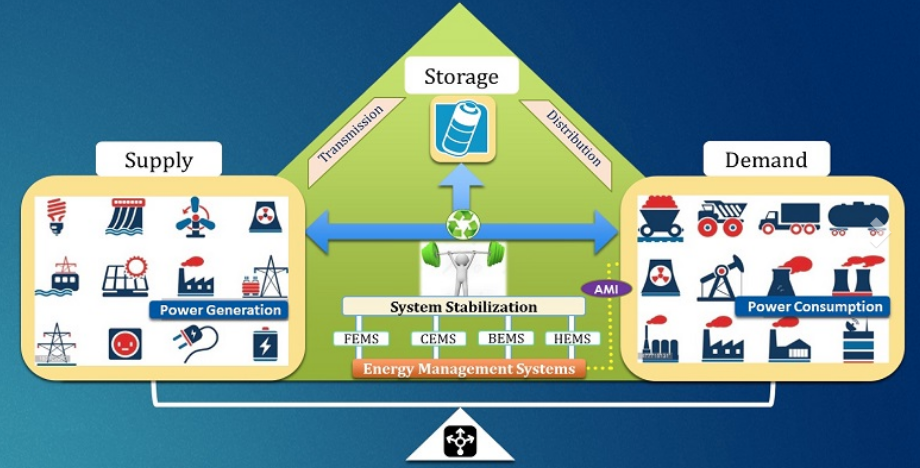
Power Systems research is focused on advancing the state-of-the-art in the areas of analysis, intelligent control, reliability, and monitoring of power systems. Developing optimization techniques, intelligent computation tools, and reliability analysis, renewable energy integration, renewable power output forecasting, electricity price forecasting, electric vehicle integration, energy storage systems integration are ongoing research topics.
- Machines and Drives
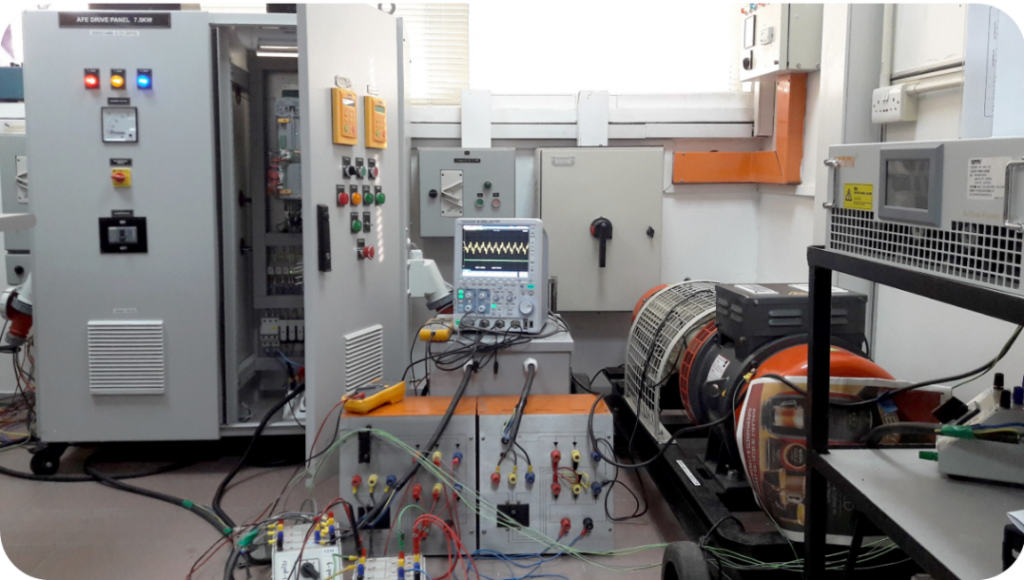
Electrical Machines and Drives research is mainly focused on fault diagnosis and condition monitoring of electrical equipment, i.e., transformer, motor, generator, converter, etc. Advanced control of medium voltage high power industrial AC drives and advanced nonlinear control techniques to address fundamental problems in the area of motor drives is another focus of current research. It is also focused on control of high power AC drives, torque ripple minimization of AC Drives such as Permanent Magnet Synchronous Motor (PMSM) and Switched Reluctance Motor (SRM) Drives, high-performance control of electric drives, building and industrial processes energy efficiency enhancement, biomimetic fish propulsion and central pattern generation mechanisms etc.
- Condition Monitoring
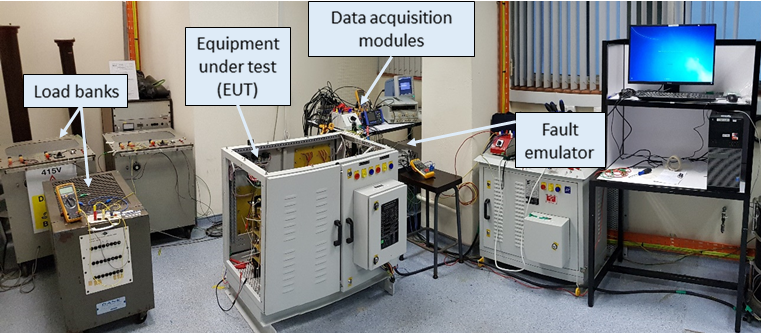
Electricity generation in a power plant is a synergy of various equipment in operation, viz., generators, turbines, boilers, transformers, switchgears and motors. A sustained electricity generation mandates continuous operation of these equipment and therefore, maintaining the critical equipment in a healthy state is paramount. Time based maintenance (TBM) has traditionally been used to that end, and it is still being pursued by utilities to a large extent. TBM however reveals little about the current status since it is essentially an offline exercise and performed only during scheduled outages, typically once in two/three years. Condition based maintenance (CBM), also known as predictive maintenance, is the emerging maintenance strategy where sensors are installed to monitor the status of the equipment continuously; and therefore provides information on equipment’s current health. This allows to schedule maintenance based on requirement and therefore significantly reduces operating cost, unscheduled outages, and downtime. Presently, condition monitoring techniques are being developed based on electrical parameters, e.g., voltage, current, and magnetic flux. Some of these proposed parameters can be tapped in from the existing protection sensors, which makes the condition monitoring using electrical signatures even more desirable. Synchronous generators, transformers, motors, switchgears, and pumps are the equipment that are presently being studied as they are the most critical equipment in power plants.
People
|
Ashwin M KHAMBADKONE E4-08-14 +65 6516 5157 Distributed Energy Resources Networks, Fuel Cell based Systems, and Control of Power Electronics based Energy systems, Digital Control of PFC and VRM and Multi-level Inverters |
Sahoo Sanjib KUMAR E4-08-02 +65 6516 6470 Electric Machine Drives, Power Electronic Converters and Renewable Energy |
|
LIANG Yung Chii E5-03-10 +65 6516 2175 Power microelectronics Intellligent power devices and smart ICs Microsystem Technology |
LOW Teck Seng NRF +65 6684 2912 Design and control of permanent-magnet actuators Field computation and neural networks Micromotors, piezoactuators Drives for automation and robotics Magnetics recording technology |
|
Sanjib Kumar PANDA E5-03-05 +65 6516 6484 Energy harvesting both at high power level as well as at very low-power level for wireless sensor nodes and networks, control of distributed renewable energy generation, assistive technology, mechatronics |
Jimmy Chih-Hsien PENG E4 06-10 +65 6516 5569 Design of microgrid, smart meter, all-electric ship, high-voltage power systems, synchrophasor application |
|
Dipti SRINIVASAN E4-06-09 +65 6516 6544 Fuzzy logic Evolutionary computation Application of soft computing techniques to power system operation and control AI techniques for machine design optimisation Intelligent incident detection for highways |
SASIDHAR, Sangit E2-02-29 +65 6601 5997 Biomedical signal processing, sensor fusion, biomimetics and embedded systems |
|
LIEW Ah Choy E1-05-16 +65 6516 2113 |
Akshay Kumar RATHORE E4-05-14 High-density high-efficiency design of power electronics, Soft-switching DC/DC converters, Novel pulse width modulation techniques, Current-fed converters, Multilevel inverters, Wide Band Gap (WBG) power electronics, Inverters for grid integration and islanded systems, Rectifiers (AC/DC converters) for EV Chargers and UPS systems, Control of electrical motor drives, Wireless Power Transfer |




